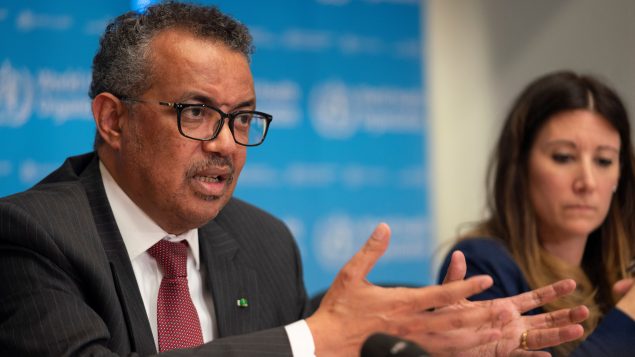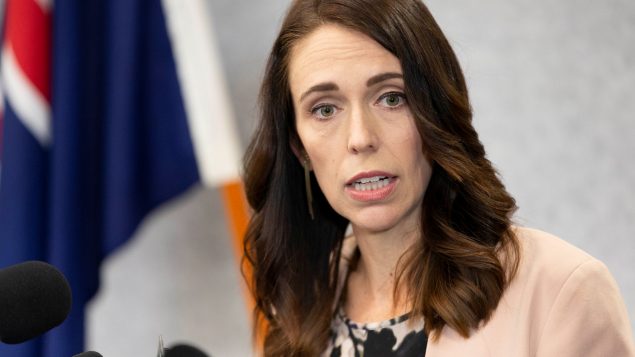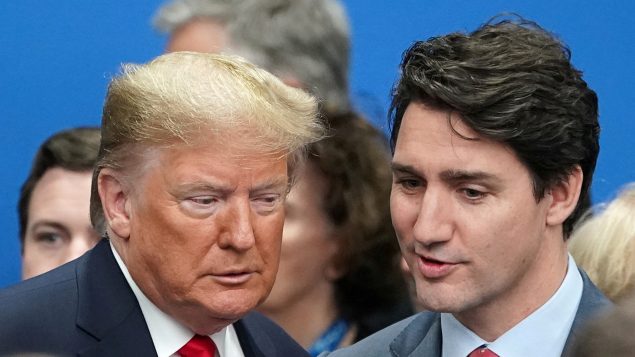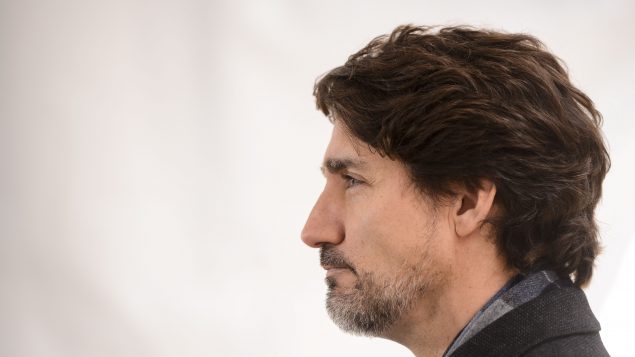Prime Minister Justin Trudeau says now is not the time to play the blame game and engage in finger pointing at the World Health Organization for its handling of the COVID-19 pandemic which reached two million cases worldwide on Wednesday.
But that is as far as Trudeau was willing to go to defend the embattled UN body facing withering attacks from U.S. President Donald Trump and conservative politicians in other countries over its response to the pandemic that has killed over 133,000 people worldwide and has brought the global economy to a standstill.
Countries around the world reacted with alarm Wednesday after Trump announced a halt to the sizable funding the United States sends to the WHO. Health experts warned the move could jeopardize global efforts to stop the COVID-19 pandemic, as the United States is the organization’s largest single donor.
‘We regret the decision’

Director-General of World Health Organization (WHO) Tedros Adhanom Ghebreyesus attends a news conference on the outbreak of COVID-19 in Geneva, Switzerland, March 16, 2020. (Christopher Black/WHO/Handout via REUTERS)
“We regret the decision of the president of the United States to order a halt in the funding to the WHO,” director-general Tedros Adhanom Ghebreyesus said Wednesday at a news briefing.
He went on to say that the organization will assess what impact the withdrawal will have on their work, and then “try to fill any gaps with partners.”
Trump has repeatedly labelled COVID-19 the “Chinese virus” and criticized the UN health agency for being too lenient on China, where the novel virus first emerged late last year.
Outside experts have questioned China’s reported infections and deaths from the virus, calling them way too low and unreliable. An investigation by The Associated Press has found that six days of delays between when Chinese officials knew about the virus and when they warned the public allowed the pandemic to bloom into a public health disaster.
Expressions of support
The European Union on Wednesday said Trump has “no reason” to freeze WHO funding at this critical stage and called for measures to promote unity instead of division. EU foreign policy chief Josep Borrell said the 27-nation bloc “deeply” regrets the suspension of funds, adding that the UN health agency is “needed more than ever” to combat the pandemic.
“Only by joining forces can we overcome this crisis that knows no borders,” said Borrell.
Australian Prime Minister Scott Morrison said he sympathized with Trump’s criticisms of the WHO, especially its “unfathomable” support of reopening China’s “wet markets,” where both live and freshly slaughtered animals are sold.
“That said, the WHO, as an organization, does a lot of important work including here in our region in the Pacific and we work closely with them,” Morrison told an Australian radio station.
“We are not going to throw the baby out with the bathwater here, but they are also not immune from criticism.”

New Zealand Prime Minister Jacinda Ardern during a news conference in Christchurch, New Zealand, March 13, 2020. (Martin Hunter/REUTERS)
New Zealand Prime Minister Jacinda Ardern said WHO was essential to tackling the pandemic.
“At a time like this, when we need to be sharing information and we need to have advice we can rely on, the WHO has provided that,” she said. “We will continue to support it and continue to make our contributions.”
When asked about Canada’s position regarding the WHO, Trudeau said Ottawa had supported the specialized UN health agency to the tune of “tens of millions of dollars.”
No pressure from the U.S.

U.S. President Donald Trump talks with Canada’s Prime Minister Justin Trudeau during a North Atlantic Treaty Organization Plenary Session at the NATO summit in Watford, Britain, Dec. 4, 2019. (Kevin Lamarque/REUTERS)
Trudeau denied that Canada has faced pressure from the Trump administration on its position on the WHO.
“No, the president hasn’t made any direct asks or indirect asks of Canada around that,” Trudeau said.
But his support for the embattled body was remarkably tepid compared to the statements made by his peers.
“Of course, in the coming months and years there will be many reflections on various institutions and systems, both domestically and internationally on how we can improve our response, on how we can learn from things we could have done better in this process,” Trudeau said.
“These are things that will come in the coming times. Right now our focus needs to be on doing the best we can right now to protect Canadians.”
With files from The Associated Press







For reasons beyond our control, and for an undetermined period of time, our comment section is now closed. However, our social networks remain open to your contributions.